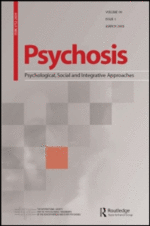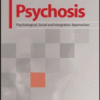Posts
Making Sense of Madness: An emancipatory approach
/2 Comments/in Events, Front Page /by Rai7 July 2017, 10 am – 4.30pm, registration from 9.30am
Hackney House, 25-27 Curtain Road, Hackney, London, EC2A 3LT
https://madness-london.eventbrite.co.uk
This unique, one day event, featuring Jacqui Dillon and Rai Waddingham (recently featured on BBC Horizon: Why Did I Go Mad?), explores experiences often dismissed as symptoms of serious mental illness: voices, visions, paranoia, unusual beliefs and altered states, and reframes them as understandable human responses to adversity.
Drawing from personal and professional experiences of madness, healing and recovery, combined with emerging innovative research findings, Jacqui and Rai present an emancipatory approach to understanding and working with distressing experiences that prioritises respect, personal meaning, self-determination and liberation.
Download: Making Sense of Madness Flyer
It includes:
- Understanding ‘mad’ experiences
- Exploring factors that can contribute to and shape distress
- Alternatives to diagnosis – moving beyond the illness model
- Respectful ways of helping people in distress
- Strategies to survive and thrive
This day is suitable for:
- Anyone interested in understanding more about madness, creativity and the complex spectrum of human experience
- Those involved in supporting another human beinga – whether this is as a friend, ally, family member, colleague, mental health professional, teacher, therapist, social worker, voluntary sector worker, manager or spiritual advisor
- All those with lived experience of madness and distress
Fees:
- Unwaged: £10
- Voluntary Sector & Self Funding: £90
- Statutory & Commercial: £125
Please get in touch if you’re in a difficult financial position – we may be able to help.
Register:
Jacqui on BBC Horizon’s ‘Why Did I Go Mad?’
/3 Comments/in Front Page, News /by Rai2nd May, 2017, BBC 2 9PM, See: http://www.bbc.co.uk/programmes/b006mgxf
 For hundreds of years, psychiatry has treated voices and hallucinations as an enemy – regarding them as ‘insanity’ or ‘madness’ and seeing them as something to be quashed and even frightened of. But today, new scientific and psychological insights into how the brain works are leading to a radical rethink on what such experiences are – and how they should be treated.
For hundreds of years, psychiatry has treated voices and hallucinations as an enemy – regarding them as ‘insanity’ or ‘madness’ and seeing them as something to be quashed and even frightened of. But today, new scientific and psychological insights into how the brain works are leading to a radical rethink on what such experiences are – and how they should be treated.
Horizon follows three people living with voices, hallucinations and paranoia, to explore what causes this kind of phenomena. Providing a rare first-hand insight into these experiences, they reveal just what it is like to live with them day to day. They examine the impact of social, biological and environmental influences on conditions traditionally associated with insanity, such as schizophrenia and psychosis, and within the film they look at how new ways of understanding the brain are leading to a dramatic change in treatments and approaches, and examine whether targeting the root causes of psychosis can lead to recovery. Above all, they try to uncover why it happened to them – and whether it could happen to you.

Jacqui Dillon on RTE.ie Radio 1 talking about Hearing Voices
/1 Comment/in Media, News, Radio /by JacquiWhat do you hear when you stop and listen to what’s going on in your head? A song that was on the radio yesterday? A snippet of this mornings conversation with your sister? Or nothing….? Are you debating the best route to take home? Are you saying a prayer? What does that sound like?
Jacqui Dillon hears voices. In her head. Lots of them.Voices that sound as real as you or me. Voices that wake her up. Voices that tell her to go to sleep. Voices that disagree with her, and voices that encourage her. And the voices have been there for as long as she can remember.So you might think Jacqui is mad, but this is the story of a woman who has come a long way with the voices in her head.
Twenty years ago Jaqqui’s experience of her voices drove her to psychiatric services…. and that’s where the story really begins because it was when she was told that the voices weren’t real, and that she was lying about her past that she really began to get mad. And that’s when Jacqui realised she had to learn to live with her voices and understand why they were there.
This is a story about hearing voices and about learning to live with them. A story about how your past shapes your future until you start to understand it .
If you have ever wondered what it would be like to hear voices, or have always thought that people who hear voices are plain mad, this documentary just might make you think twice.
Jacqui Dillon is the national Chair of the Hearing Voices Network in England. She is Honorary Lecturer in Clinical Psychology at the University of East London.
Narrated and produced by Leeanne O’Donnell
Production Supervision by Liam O’Brien
Click here for more information on Hearing Voices Network
Click here for more information on Jacqui Dillon
First Broadcast December 7th 2013
‘Documentary on One is the home of Irish radio documentaries and the largest library of documentary podcasts available anywhere in the world. We tell stories in sound, mostly Irish ones, and each documentary tells its own story’
Listen:
You can listen here: http://www.rte.ie/radio1/doconone/radio-documentary-sounds-mad-hearing-voices-psychology.html
Editorial: Voices in a Positive Light
/0 Comments/in Articles, Publications /by Jacqui
What does it mean to think of voices ‘in a positive light’?
For the contributors to this first special issue of Psychosis, it means challenging any model that understands voice-hearing solely as the meaning-less symptom of an underlying disease, deficit, or dysfunction. Mainstream biomedical psychiatry’s account of auditory verbal hallucinations we regard as phenomenologically impoverished, actively disempowering, over-invested in unsupportable distinctions between ‘normal’ and ‘pathological’ voices, and ill-equipped to investigate or make sense of what is now known about the link between voice-hearing and people’s life experiences. As a result, its efforts to midwife recovery from the impairment that can be caused by some voices are at best incomplete and, at worse, actively harmful. Without downplaying the need for further investigation and critique of these dominant models, our goal in this special issue is to foreground positive approaches both to the experience of hearing voices and to the way this is conceptualised and researched.
Exciting new Hearing Voices Research & Development Fund in USA
/1 Comment/in News /by JacquiHearing Voices Research & Development Fund
http://femhc.org/Giving.aspx#Hearing_Voices_Research__Development_Fund
The Hearing Voices Research and Development Fund has been established to advance the development of the Hearing Voices Approach in the U.S. The Project was created by Gail A. Hornstein, Professor of Psychology at Mount Holyoke College, and Jacqui Dillon, National Chair of the Hearing Voices Network in England, who have been working together for 10 years to bring new approaches to understanding and coping with voice hearing.
Background
People who hear voices, see visions, or experience other extreme states often end up being diagnosed as psychotic (usually with schizophrenia) and a poor prognosis. The medications which have routinely been prescribed for such patients since the 1950s are effective for some but not for others, and even when they do work, their benefits typically diminish over time, while destructive physical and psychological side effects become increasingly problematic. Hearing voices in particular remains a challenge for many, many patients even after they have been tried on every possible medication over many years, and continues to be seen by many psychiatrists as a “treatment-resistant” symptom.
Hearing Voices Approach
For the past 25 years, the Hearing Voices Network – an international collaboration of professionals, people with lived experience, and their families and friends – has been working to develop an alternative approach to coping with voices, visions, and other extreme states that is empowering and useful and does not start from the assumption that people who have these experiences suffer from a chronic illness. A large body of research data, published in major professional journals, now provides support for key aspects of this approach (see references below), and the hundreds of peer-support groups that have developed in 20 countries around the world are enabling voice hearers – even those who have been chronically disabled – to learn to cope more effectively or rid themselves of the negative effects of their voices. These groups are now starting to spread across the US, but the lack of a systematic program for training potential facilitators and others interested in incorporating HVN’s work into their research or teaching is holding the United States back from being able to offer this effective, community-based psychosocial alternative to the current risky practice of large-dose, long-term treatment with (usually multiple) medications.
Hearing voices peer-support groups offer a safe place for people to share their experiences of voices, visions, tactile sensations and other unusual experiences and perceptions. People meet together to help and support each other, to exchange information, and to learn from one another’s coping strategies. Groups also offer an opportunity for people to accept and “live with voices” in a way that enables them to regain some control over their lives.
The situation in the US stands in striking contrast to that of other countries. For example, England (a country with a population of 60 million) has 180 hearing voices groups, and Denmark (a country of 5 million) has several dozen, whereas the US, with its population of over 300 million, currently has only about 15. The fund will support the development of HVN groups across the US by providing a systematic program of training that will create a network of hearing voices peer-support groups in key centers in each region of the country. Participants will be selected using a rigorous model in which mental health professionals and voice hearers collaborate in an intensive shared learning experience that equips them to apply HVN’s concepts and methods to the creation of positive alternatives for people diagnosed with psychosis.
Hearing Voices Research
The fund will also support a research study to provide the kinds of basic phenomenological descriptions of the voice hearing experience that have become increasingly essential to other research in this area.
Even though more and more researchers have become interested in investigating the complexities of voice hearing in and of itself (as opposed to treating it simply as one of a number of so-called “positive symptoms” of schizophrenia), the lack of a clear identification of the defining characteristics and significance of the experience for voice hearers makes it difficult to compare results across different studies. In addition, as colleagues from HVN have highlighted in their work (see references below), there is no evidence for the standard assumption that patients who hallucinate cannot articulate the triggers, contextual variability, or meaning of their experiences. The few phenomenological studies that have been conducted thus far demonstrate clearly that understanding the subjective experience of voice hearers themselves is essential to the ultimate effectiveness of any intervention designed to help them.
The Foundation for Excellence in Mental Health Care
We are a group of scientists, psychiatrists, researchers, public policy analysts, users and providers of mental health services, philanthropists, and community members that formed The Foundation for Excellence in Mental Health Care to find and promote the best ways to achieve long-term recovery and help people with mental health challenges to thrive.
The Foundation was established in response to nationwide interest in Robert Whitaker’s book, Anatomy of an Epidemic, and the desire to examine existing research, create support for new innovative research and programs, and sponsor symposia to build a new paradigm of care that focuses on long-term recovery and wellness.
Strong evidence demonstrates that our 25-year long over-reliance on a purely medical model has not advanced mental health recovery. The number of individuals diagnosed with “chronic mental illness”, disabling enough to place them on the Social Security roles has tripled since 1987.
The Foundation has established a Scientific Advisory Committee and Community Advisory Committee to guide our activities of mental health reform.
For More Information:
www.hearing-voices.org
www.intervoiceonline.org
www.hearingvoicesusa.org
www.gailhornstein.com
www.jacquidillon.org
Selected References
Beavan, V. (2011). Towards a definition of “hearing voices”: A phenomenological approach. Psychosis: Psychological, Social and Integrative Approaches, 3, 63-73.
Dillon, J. (2006, November). Collective voices. Open Mind.
Dillon, J. and E. Longden (2012) Hearing voices groups: Creating safe spaces to share taboo experiences. In M. Romme and S. Escher (eds.), Psychosis as a personal crisis: An experience-based approach. London: Routledge.
Honig, A., M. Romme, B. Ensink, S. Escher, M. Pennings and M. Devries (1998). Auditory hallucinations: A comparison between patients and non-patients. Journal of Nervous and Mental Disease, 186, 646-651.
Hornstein, G.A. (2009). Agnes’s Jacket: A Psychologist’s Search for the Meanings of Madness. New York: Rodale Books. (UK edition, with a new introduction, PCCS Books, 2012)
Johns, L.C., J. Y. Nazroo, P. Bebbington and E. Kuipers (2002). Occurrence of hallucinatory experiences in a community sample and ethnic variations. British Journal of Psychiatry, 180, 174-78.
Lakeman, R. (2002). Making sense of the voices. International Journal of Nursing Studies, 38, 523-531.
Martin, P.J. (2000). Hearing voices and listening to those that hear them. Journal of Psychiatric and Mental Health Nursing, 7, 135-141.
Romme, M. and S. Escher (1989). Hearing voices. Schizophrenia Bulletin, 15, no. 2, 209-216.
Romme, M. and S. Escher (eds.). (1993; 2nd ed. 1998). Accepting Voices. London: MIND Publications.
Romme, M. and S. Escher (1996). Empowering people who hear voices. In G. Haddock and P. Slade (eds.), Cognitive Behavioral Interventions with Psychotic Disorders. London: Routledge, pp.137-150.
Romme, M. and S. Escher (2000). Making Sense of Voices: A Guide for Mental Health Professionals Working with Voice-Hearers. London: MIND Publications.
Romme, M. and S. Escher (2005). Trauma and hearing voices. In W. Larkin and A. Morrison (eds.) Trauma and Psychosis: New Directions for Theory and Therapy. London: Routledge.
Romme, M., S. Escher, J. Dillon, D. Corstens and M. Morris (eds.). (2009). Living with Voices: 50 Stories of Recovery. Ross-on-Wye, UK: PCCS Books.
Romme, M., A. Honig, E.O. Noorthoorn and S. Escher (1992). Coping with voices: An emancipatory approach. British Journal of Psychiatry, 161, 99-103.
Sayer, J., S. Ritter and K. Gournay (2000). Beliefs about voices and their effects on coping strategies. Journal of Advanced Nursing, 31, 1199-1205.
Mental Health Campaigners Welcome New Book About Schizophrenia
/0 Comments/in Press /by JacquiPublished in The Guardian, 5th July 2011.
Mental health campaigners welcome book about schizophrenia.
The letters, journals and scribbled observations of David, diagnosed with schizophrenia, have been collated for a new book.
By Mary O’Hara
Schizophrenia is perhaps the most widely misunderstood and misrepresented of all serious mental illnesses in popular culture and media. So, when first-person accounts offering insights into the experience of someone who has lived with schizophrenia come along, they tend to be welcomed by mental health campaigners as an antidote to misinformation. Such has been the case with David’s Box, a new book documenting the journals and letters of a young man diagnosed with the illness in 1964 who took his own life seven years later.
Read more: http://www.guardian.co.uk/society/2011/jul/05/schizophrenia-journals-davids-box
Mental Health Campaigners Welcome New Book About Schizophrenia
/0 Comments/in Blog, News /by JacquiThe letters, journals and scribbled observations of David, diagnosed with schizophrenia, have been collated for a new book.
A positive piece published in the Guardian, 5th July 2011 by Mary O’Hara about this important new book – David’s Box: The journal and letters of a young man diagnosed as schizophrenic, 1960-1971, for which I have written a foreward.
http://www.guardian.co.uk/society/2011/jul/05/schizophrenia-journals-davids-box
Latest Updates
- Drop the Disorder – And then what?!29/10/2021 - 6:48 PM
- Intervoice Congress 202131/08/2021 - 7:18 PM
 BBC Breakfast: Jacqui and Rai talking about Hearing Voices on TV18/07/2021 - 8:07 PM
BBC Breakfast: Jacqui and Rai talking about Hearing Voices on TV18/07/2021 - 8:07 PM Jasper Gibson & Jacqui Dillon in conversation at AD4E Festival05/05/2021 - 3:37 PM
Jasper Gibson & Jacqui Dillon in conversation at AD4E Festival05/05/2021 - 3:37 PM Jasper Gibson and Jacqui Dillon, In Conversation – Fiction about Psychosis: Impact, ethics, effects05/05/2021 - 2:45 PM
Jasper Gibson and Jacqui Dillon, In Conversation – Fiction about Psychosis: Impact, ethics, effects05/05/2021 - 2:45 PM





